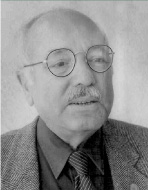

Sasson Somekh’s wise and often gently funny memoir Baghdad, Yesterday takes shape like a series of telling snapshots from another time and place. The time is the 1930s and 40s and the place, Iraq, where Somekh and his family were part of the country’s then-flourishing Jewish community. The book-which was highly acclaimed when it was published in Israel in 2004 and which has since been translated into Turkish and Arabic-offers an intimate view of this milieu and manages both to describe vividly the young Somekh’s intellectual and emotional growth and to map the now-vanished world of Baghdad’s book stalls and literary cafés, its Arabic-speaking Jewish bank clerks, tuxedoed Iraqi-Jewish weddings, outdoor movies at the Cinema Diana, and bonfires by the Tigris. As the pieces of Somekh’s unsentimental and sharply drawn memoir accumulate, they also mount in meaning. The book celebrates the ups and downs of Iraqi Jewish life as it also portrays the eventual dissolution of the community in the early 1950s.
For years one of the world’s leading authorities on Arabic literature and among modern Hebrew’s most respected translators from contemporary Arabic poetry, Israel-Prize-winner Sasson Somekh has spent decades writing and teaching about a wide range of Middle Eastern cultural topics, and his personal and professional experience put him in a unique position to look back and reflect on the rich, startling, and now-vanished universe of mid-twentieth-century Baghdad.
“It is hard to overstate the beauty, originality, lucidity, gentleness, wisdom and importance of Baghdad, Yesterday.”
Ma’ariv (Israel)
“The picture that emerges from Baghdad, Yesterday is one of closeness, cooperation, and a shared fate among the members of the city’s different religions. A letter [Somekh] received from the great Egyptian writer Naguib Mahfouz could serve as the book’s motto:
Both our peoples knew extraordinary partnership for many years in ancient times, during the Middle Ages, and in the modern era, with … quarrels and disputes being few and far between. Unfortunately, we have documented the disputes one hundred times more than the periods of friendship and cooperation. I dream of the day when, thanks to the collaboration among us, this region will become a home overflowing with the light of learning and science, and blessed by the highest principles of heaven.'”
HaMifneh (Israel)
SASSON SOMEKH was born in Baghdad in 1933 and moved to Israel in 1951. He began his career as an Arabic poet and his early work appeared in the Arabic literary magazines that were published in Iraq and Israel in the 1950s, though he eventually opted for an academic career. After obtaining his doctorate from Oxford, he returned to Israel and was one of the founders of the Department of Arabic Language and Literature at Tel Aviv University. He has published many books, including a ground-breaking monograph about Nobel Prize-winning Egyptian novelist Naguib Mahfouz and numerous collections of translations of Arabic poetry. The former head of the Israeli Academic Center in Cairo, he was awarded the Israel Prize in 2005 for his life’s work.
Paperback $16.95 212 pages ISBN 965-90125-8-6
Publication Date: November 2007
This book is no longer in print.